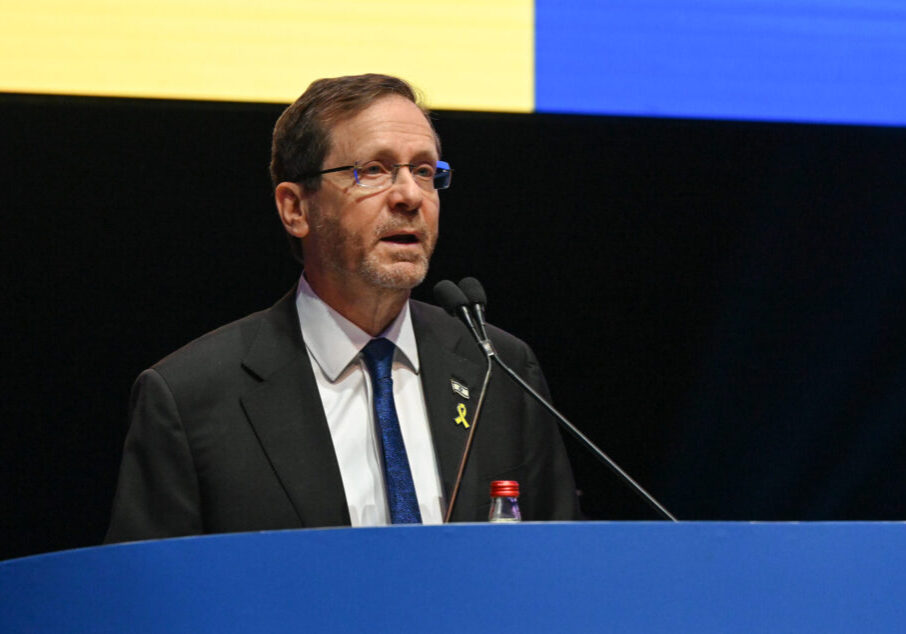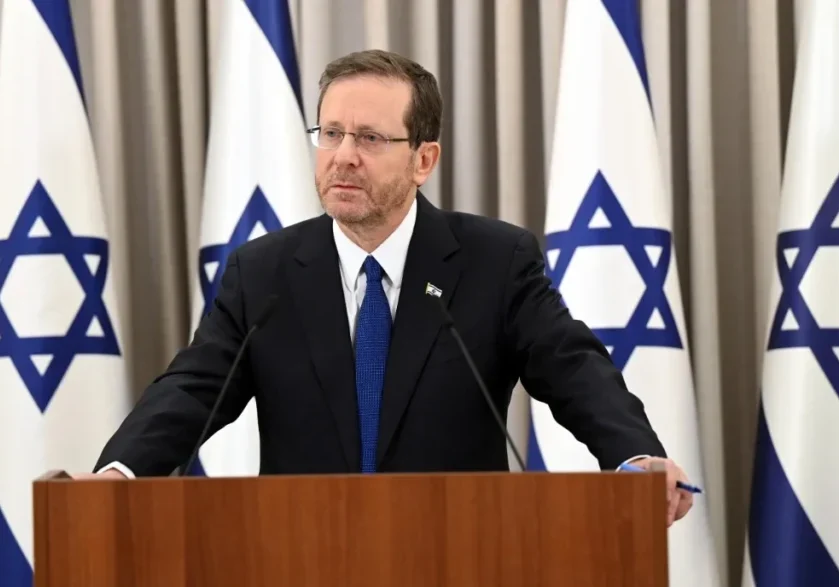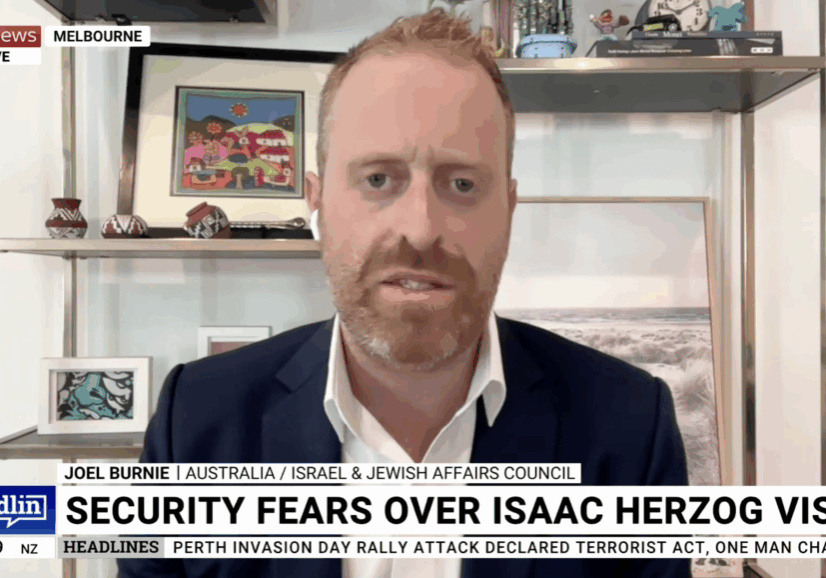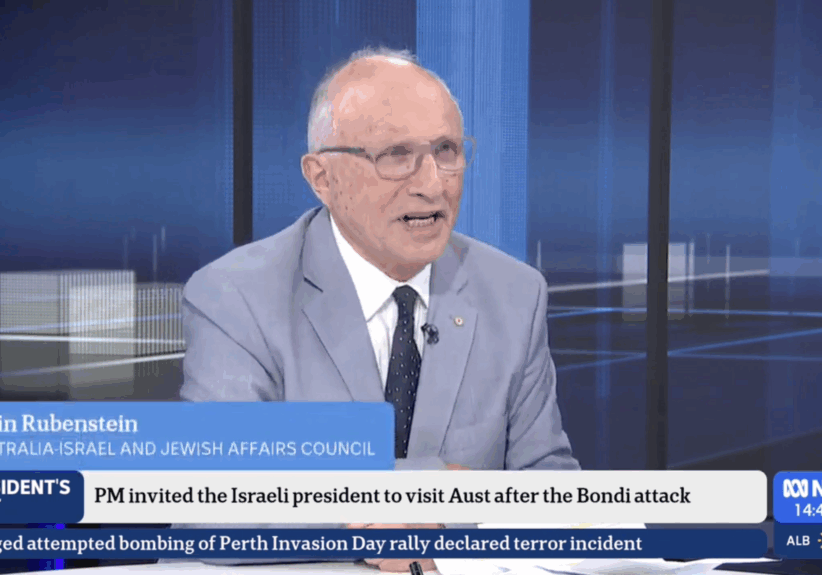Australia/Israel Review
At an impasse?
Nov 24, 2009 | Robert Satloff
By Robert Satloff
How is it possible that a US administration that came to office committed to the pursuit of Arab-Israeli peacemaking is today further from even getting the parties to talk with each other than at almost any point since the peace process began at the Madrid conference more than 18 years ago?
All administrations come to power not caring much about – or convincing themselves that they don’t need to care much about – their predecessors. The Obama Administration is no different in this regard. The new team came to office promising, in effect, a policy of “anti-Bushism,” and this was the case particularly when it came to the broader Middle East.
The contrasts the Obama Administration sought to draw were stark: where Bush did not pursue the Arab-Israeli peace process until year seven, Obama would start from day one; where Bush isolated US adversaries and declared countries either “with us” or “against us,” Obama would engage these adversaries and offer to work with all comers based on “mutual interests and mutual respect”; where Bush hectored friends to promote democratic institutions, Obama would use quiet diplomacy; where Bush pushed in a general sense for regime change, Obama would focus solely on behavioural change; and where Bush saw America’s ideological adversary as Islamo-fascism, jihadism, or radical Islam, Obama would view outreach to the world’s Muslims as a high and urgent priority. With regard to the peace process, where Bush was willing to reach quiet, practical, de facto, but very real understandings with Israel on settlement activity, Obama would deny that such understandings ever existed and demand something that no Israeli government could deliver (and, as a result, what no Palestinian leader since the years of the Oslo Accords had ever insisted on): an absolute, 100%, not-one-brick freeze on construction in any non-Arab site in either the West Bank or Jerusalem.
A dispassionate analysis of Obama Administration Middle East policy, however, reveals – despite the rhetoric – some important areas of continuity from the Bush years. In the Arab-Israeli arena, several stand out: a commitment to protect the gains of the March 14 revolution in Lebanon and to prevent Hezbollah’s victory in Lebanese parliamentary elections; a commitment to maintain sanctions on Syria and pursue a tough-minded, results-oriented, incrementalist engagement with Damascus; and a commitment to insist that Hamas fulfil the conditions for diplomatic engagement outlined by the Quartet (the UN, EU, US, and Russia).
This last item being noted, the Obama Administration had a certain ideological inclination to engineer a “big bang” in peacemaking that would transform the regional environment, and give a huge boost to the goal of reaching a final-status agreement between the Israelis and Palestinians. This big bang would result from two critical ingredients: an Israeli promise to freeze all settlement construction and an Arab (read: Saudi) commitment to take fairly minor steps toward normalisation with Israel. At the same time, the administration came to believe, not unreasonably, that the best option for addressing the Iran nuclear file would be to hold its nose and try to seek a deal with the odious leadership of the Islamic Republic.
Mugged by Reality: Part I
In one fateful week in June, the administration’s approach toward both the Israeli-Palestinian issue and Iran’s nuclear ambitions was mugged by reality. First, on his maiden visit to Riyadh, the president was rebuffed by the Saudi king, who refused to offer any steps toward normalisation with Israel. The result was that the administration found itself with a public fight with Israel over settlements, in effect freeing the Arab states from taking any responsibility to contribute to the success of the administration’s efforts, and with a full-blown diplomatic impasse. Then, several days later, the other key pillar of Obama US policy – willingness to resolve the nuclear file with Iran by negotiating a deal directly with the Iranian leadership – was upset by the inconvenient uprising of the Iranian people against the theft of their presidential election, exposing the most serious fissures in the regime since the Islamic Revolution thirty years ago.
The period from mid-June through early September saw a shift in the administration’s approach: a shift in advisers (namely, Dennis Ross’ move from the State Department to the White House), a shift in peace process strategy (recognition of the need to find a way out of the settlement impasse with Israel), and a shift in Iran policy (Washington’s Iran timeframe narrowed and the administration began serious discussions with allies and friends on sanctions options.) Eventually, these shifts led to a week of positive news for the administration – starting with the late September meeting in New York between Israeli and Palestinian leaders, engineered by the president, and followed by the Oct. 1 tentative agreement in Geneva by Iran on a P-5 + 1 offer on uranium enrichment. For a moment, things looked like they were falling into place.
Mugged by Reality: Part II
Then things fell apart – again. The side effect of Washington’s ultimately more realistic approach on the question of Israeli settlements was to leave Palestinian President Mahmoud Abbas out on a limb. Despite this, people thought Abbas would be strong enough to uphold his commitment to Washington to postpone international action on the UN Goldstone report on Gaza for six months, during which (it was assumed) peace diplomacy would be restarted in earnest. Alas, he was not strong enough to do this. Palestinian politics overwhelmed him, and he has been running for cover ever since. On Iran, the initial assessment in Washington was that the combination of a united international front and domestic political pressure had compelled the Iranian leadership to accept the Geneva deal. In reality, the powers opposed to the deal – or at least the powers of indecision – seem to have won out. So, by the end of October, the era of good feelings engendered by the meeting between Abbas and Israeli Prime Minister Binyamin Netanyahu, on the one hand, and the Geneva deal, on the other, had already fizzled out.
Washington was caught in a web of its own making. And the outcome is truly amazing. Now, after the Palestinians had begged the United States to compel Israel to discuss a two-state solution, the Israelis are begging the Palestinians to discuss a two-state solution – the Palestinians are refusing to come to the table. History has truly been turned upside down.
My own view is that despite these self-inflicted wounds, the situation is probably not much different from what it would have been had we not gotten ourselves stuck in the settlements muck for the past nine months. Yes, the situation has been exacerbated, but the reality is that, first, Netanyahu is highly unlikely to offer the Palestinians what former Israeli prime minister Ehud Olmert offered in his private talks with Abbas last year. Second, Abbas has been led to believe over the years – after watching Yasser Arafat at Camp David and Taba and then participating in his own talks with Olmert – that with time, the Israelis can only improve their offer, so there is no reason for him not to wait. An impasse was in the cards.
Policy Directions
As we consider potential next steps in the Middle East peace process, we should keep in mind the following critical factors:
• Obama is not a foreign policy president. He was elected principally to solve America’s economic problems and to address other pressing domestic issues like healthcare.
• In the foreign arena, he is a reluctant war president. That issue dominates all other foreign policy issues.
• In the broader Middle East, the Iran nuclear file is a much higher priority than the Arab-Israeli peace process. The stakes are higher; the urgency is greater; the clocks are ticking faster. It is a sad but very likely reality that we will still be talking about the Israeli-Palestinian issue two years from now. Yet chances are much lower that we will still be talking about the potential Iranian nuclear bomb in two years’ time – that issue will have been addressed, one way or another, for better or for worse. Indeed, Obama will be judged by Middle Easterners and world leaders far more on whether he fulfils his promise to prevent Iran from acquiring nuclear weapons capability then on whether, on his watch, America helps local parties reach the permanent resolution of the Arab-Israeli conflict.
• On the peace process itself, despite the glum forecast, vitally important work remains to be done. And we should not lose sight of two very positive developments: first, the post-2007 strategy of “isolate Hamas and build up the West Bank” is working; second, as a result, many Palestinians are beginning to accept the idea that they will have to build their own state from the bottom up and the inside out, as evidenced most recently by the state-building plan advanced by Palestinian Authority (PA) Prime Minister Salam Fayyad. While one can quibble with the details, no objective observer can contest that this plan represents the most constructive idea to emerge out of the peace process in years. By itself, though, the plan will not fly. It needs, in my view, political cover. We should not be handcuffed by the Roadmap proposition that the path to peace has only two phases – a state with temporary borders (phase 2) and a final settlement (phase 3). Many other options for progress exist – a narrow negotiation over borders and security; actions by Palestinians that would allow either a third Israeli redeployment or an Israeli withdrawal in the West Bank to the pre-September 2000 lines; or the pursuit of an Israeli-Palestinian armistice agreement.
Will there be a partner for such a strategy? On the Israeli side, I think the answer is yes. And on the Palestinian side, I think the answer is probably yes, too. After all, when all is said and done, Abbas (or what Abbas represents) has no option but to make a strategic choice for negotiations over confrontation. If he prefers confrontation, then he might as well turn the keys to the PA over to Hamas, which is more authentic as a “resistance” movement. The real question is whether the Obama Administration has the stomach for the hard work of peace building, which is what this strategy rests on. Some suggest that the president could adopt the “call us when you’re ready” approach of former White House chief of staff James Baker. Given the president’s commitment on this issue, given the attachment so many in the administration have to the idea that progress on the peace process is essential for progress on wider US regional interests, I do not think Obama can disengage from Middle East diplomacy. But the Jim Baker question is the wrong question – the real question is whether Obama can become Bill Clinton at Wye River: a president willing to work overtime for an important but very incremental deal. For Israelis and Palestinians hoping for progress in peace process diplomacy, that is a great unknown.
The above is an edited version of Dr. Robert Satloff’s Nov. 6, 2009, Policy Forum presentation at the Washington Institute for Near East Policy. Dr. Robert Satloff is executive director of the Washington Institute. © Washington Institute, reprinted by permission, all rights reserved.
Tags: Israel






